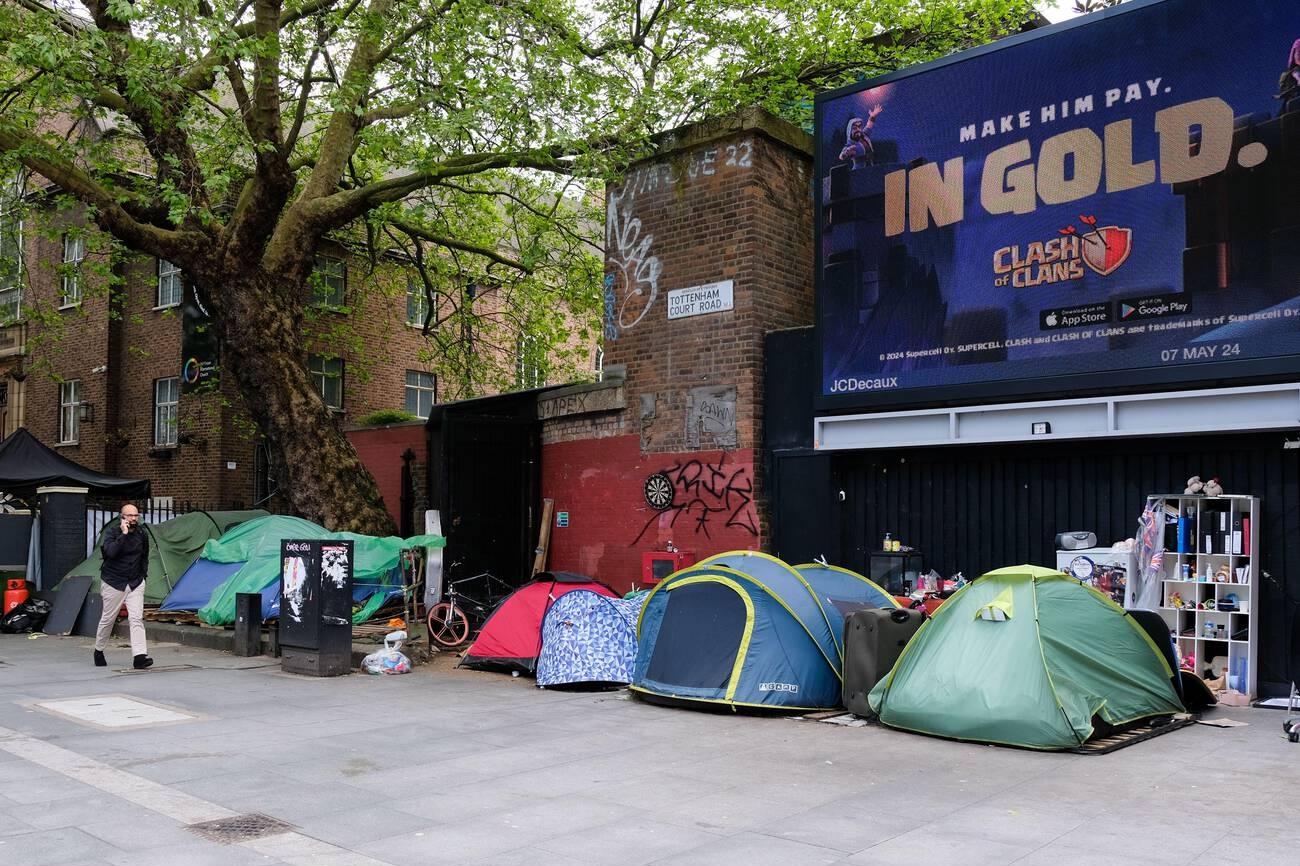Can Starmer Bridge the Gap Between Promise and Reality?
Far-right protests across the UK in recent weeks have renewed debates about race, belonging, and citizenship. After thousands marched

Far-right protests across the UK in recent weeks have renewed debates about race, belonging, and citizenship. After thousands marched in London against immigration, Prime Minister Keir Starmer issued a strong public statement. He said Britain must not leave anyone feeling threatened or intimidated because of their background, skin colour, or ethnicity. These were words of courage, reminding us of the values of equality and tolerance. However, the gap between these statements and the reality of the asylum and immigration system remains wide. Without change, the promise of inclusion risks being undermined by long delays, economic unfairness, and the vulnerability of migrants in deprived areas. This article examines Keir Starmer’s response to far-right protests and highlights the gap between his rhetoric on equality and the structural problems of Britain’s asylum and migration system.
Starmer’s Response to Far-right Protests Across the UK
Starmer was quick to act after mobs of ultra-right campaigners took over the city center of London in a massive anti-immigration march. He addressed the public that a demonstration is a right of democracy, but condemned harassment and racist chanting. He declared that Britain would “never surrender its flag” to those who seek to use it as an instrument of hate. His words were clear: the state is standing with minorities and against extremist attempts to terrorize citizens. News reports from sites such as Independent News highlight his resolve to use moral leadership in periods of tension. However, critics argue that speaking is easier than making real organizational reforms. The fundamental right does not progress solely through cacophonous rallies; it capitalizes on legitimate societal frustrations. Until such roots are tackled, condemning marches will lack substance.
The Asylum System Contradiction
At the heart of such political utterances lies an asylum system marked by delays and uncertainty. Research by the Migration Observatory at Oxford shows that the UK has a massive backlog of asylum cases. People wait years to be determined. They are now in a state of legal limbo: neither free to work, nor certain of their housing, nor with adequate access to education or health care. For the majority, existence is a succession of uncertainty and powerlessness. While Starmer speaks of safeguarding minorities, the gradualness of the system leaves thousands at their mercy. Others argue that the delays fuel resentment among both migrants who feel forgotten and among established residents who see underfunded services pushed to the limit. The asylum backlog thereby deepens divisions instead of closing them.
Deprivation, Geography, and Migration
Another issue is the way in which flows of migration intersect with social geography. When more affluent immigrants or those with more affluent networks depart from deprived areas, those remaining tend to face more severe disadvantages. They might have worse schools, fewer job connections, and lower access to local resources. As a result, they are unable to defend their rights, participate in politics, or fully integrate into society. Manchester University’s research substantiates that the deprived areas create contexts where migrants become more segregated. In those areas, people experience discrimination more sharply, and their frustration with inequality grows. People in such communities are also placed at greater risk when Far-right protests across the UK occur, as the risk of violence or intimidation is increased where residents already perceive that they are at risk. Such a reality makes it more challenging to have a straightforward narrative of inclusion.
The Role of Far-right Mobilisation
Far-right groups capitalize on economic and social divisions. They present themselves as defenders of “ordinary” citizens against immigrants, even though the evidence typically contradicts their claims. During housing shortages or when services are stretched, these groups blame migrants based on ethnicity. They spread messages that aim to affect the very same communities already hurting due to poverty and lack of resources. When Far-right protests across the UK become featured, the cycle is repeated. Minorities feel fear, disadvantaged communities feel abandoned, and extremists recruit more followers by offering a false sense of belonging. Starmer’s dismissal of their message is key, but battling far-right narratives also means showing residents that the government can deliver fairness and possibility.
Why Symbols Alone Are Not Enough
Racist denunciations matter. They create a clear message that intimidation won’t be accepted. But such gestures won’t reduce asylum waiting lists, invest in schools, or expand access to healthcare in deprived areas. Without structural change, speaking out risks being a short-term fix. Right-wing politicians can then attack leaders for hypocrisy. Limiting the strategy to denunciation, without action on asylum backlogs or inequality, allows grievances to persist. Leaders must not only reject far-right narratives but also challenge them.
What Reforms Are Needed?
There are several reforms that could turn words into real action. First, the government should add more staff and resources to the asylum system so cases are handled fairly and quickly, and no one waits years for a decision. Second, targeted investment is needed in poorer communities. This means investing in better schools, more job training, and public services to reduce inequality. Third, migration policy should ensure that asylum seekers have access to legal assistance, the right to work, and are treated with dignity throughout the process. Fourth, the government should establish community spaces and programs to assist long-term migrants in settling in and forming connections. By making these changes, Starmer can show that far-right protests do not represent British values and that fairness is possible for everyone.
Balancing Security and Rights
Another challenge is how authorities handle security. After violent protests, police are under pressure to respond more forcefully. While maintaining public order is important, the government must also refrain from actions that target minorities. If police act too harshly, communities may feel excluded both by extremists and by the state. Finding the right balance is difficult but necessary. A democracy must demonstrate its ability to protect both safety and civil rights. Fairness in security and asylum policies helps reduce the far-right’s claims of double standards.
The Wider European Context
The UK is not alone in facing these issues. Across Europe, far-right groups have gained support by fuelling fears about migration and economic problems. From Italy to Germany, similar rallies and protests have taken place. Britain faces its own challenges with multiculturalism and debates about national identity. Far-right protests in the UK are part of wider European tensions. Starmer’s leadership will be tested both domestically and internationally. If his government can match strong anti-racist words with real change, Britain could set an example. If not, the UK may follow other European countries where far-right ideas have become mainstream.
Beyond Words Toward Action
Far-right protests across the UK show the urgent challenge to Britain’s democracy. Starmer’s statement that no one should feel threatened because of their background is particularly important, especially in times of tension. But words alone are not enough. The asylum backlog remains, disadvantaged areas are overlooked, and migrants are left waiting. Extremists use these problems to gain influence. To protect equality and inclusion, the government needs to act, not just speak. Policies must prove that equality is more than just talk. Only then will Britain show that its values are put into practice every day.









